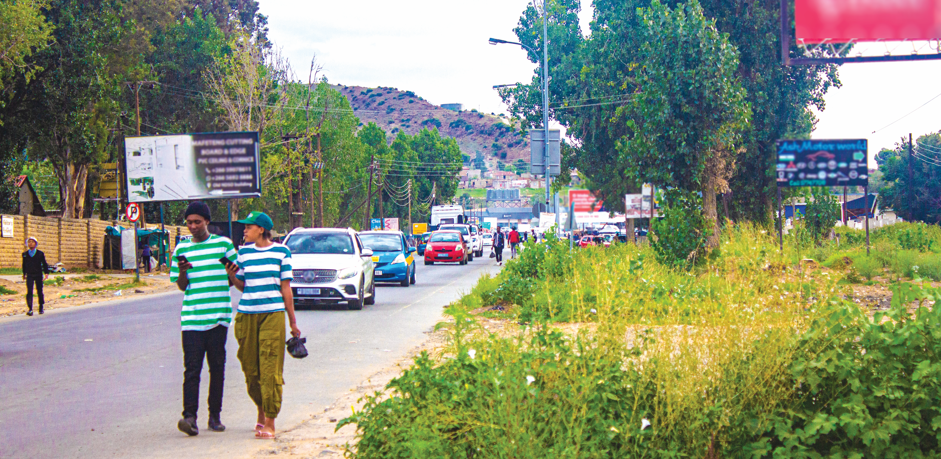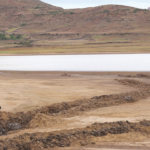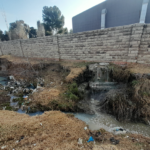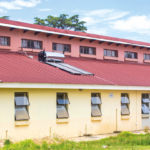The hospitality industry in Mafeteng is reeling under the strain of a severe water crisis affecting areas under the Mafeteng Urban Council, primarily serviced by the Water and Sewerage Company (WASCO).
With persistent water shortages, many hotels and guesthouses have resorted to boreholes and outsourced water deliveries to sustain their operations.
However, these emergency measures are proving inadequate, forcing some establishments to limit the number of guests they accommodate.
During Newsday’s visit to the town on Tuesday, Masoeli Letale, an employee at Golden Hotel, urged authorities to use the ongoing drought as an opportunity to rehabilitate Mafeteng’s three main dams.
“Our government, through the Ministry of Natural Resources and WASCO, should take this time to remove silt from Skanska (Rasebala) Dam so it can be fully operational once the drought ends,” she said.
Letale noted that while there had been a slight improvement in water supply recently, with low-pressure tap water available, the situation remains critical.
“The water pressure is very low, and we are unable to fill our tanks, which we rely on to distribute water into rooms for flushing toilets. We are forced to place buckets of water in the rooms so that visitors can flush manually,” she explained.
Rethabile Sekike, an employee at City Centre Hotel, stated that their survival hinges on a borehole at the facility, though it is insufficient to meet the hotel’s full water demands.
“Although it doesn’t pump large amounts of water, it helps us keep operations running by supplying our storage tanks,” Sekike said.
However, the situation worsens when the hotel is fully booked, particularly when hosting international guests.
“Our reserve water runs out quickly, and since the borehole takes hours to refill, this causes major inconveniences, especially regarding hygiene,” she noted.
Sekike also revealed that the water shortage negatively impacts their ratings on Booking.com, an online platform where international guests book accommodations.
“Tourists and business travelers do not understand the district’s water challenges. Some get frustrated and leave immediately, while others stay after we explain the situation. Local guests, however, are more understanding,” she added.
Limpho Mohapi, from Khatholoha Guesthouse in Matšaneng, reported that while they had received consistent water for the past few days, albeit with fluctuating pressure, the festive season and the beginning of the year had been particularly difficult.
“We had to outsource water from private borehole owners just to stay operational. We even had to cut some of our services,” Mohapi said.
On January 8, the Water and Sewerage Company (WASCO) acknowledged the severe water scarcity affecting Mafeteng, which it said had disrupted daily life and strained businesses and essential services.
WASCO attributed the crisis to unpredictable weather patterns linked to climate change, including prolonged droughts and extreme heat waves, exacerbated by the siltation of the Rasebala Dam, the town’s primary water source.
“The Rasebala Dam, commissioned in 1993 and upgraded in 2012 to meet growing demand, has suffered significant siltation, reducing its storage capacity to just 15 percent. The town’s water treatment plant, designed to produce 3.3 Mega Litres per day (ML/D), currently delivers only 1.8 ML/D, well below the town’s demand,” WASCO stated.
“Additional challenges include dwindling water levels in supplementary dams (Luma and Raleting), which were commissioned during a severe drought in 2015 as temporary relief measures,” it added.
During the visit to the district, Newsday learned through interviews with various stakeholders that WASCO is currently pumping 2.3 million litres per day, following a brief heavy rainfall last week.
However, this remains below the plant’s minimum required output of 3.3 million litres per day, and production could drop further if no additional rainfall occurs.
Summary
- The hospitality industry in Mafeteng is reeling under the strain of a severe water crisis affecting areas under the Mafeteng Urban Council, primarily serviced by the Water and Sewerage Company (WASCO).
- During Newsday’s visit to the town on Tuesday, Masoeli Letale, an employee at Golden Hotel, urged authorities to use the ongoing drought as an opportunity to rehabilitate Mafeteng’s three main dams.
- Rethabile Sekike, an employee at City Centre Hotel, stated that their survival hinges on a borehole at the facility, though it is insufficient to meet the hotel’s full water demands.

Seabata Mahao is a general news reporter with special focus on Business and Sports. Started working at Newsday in 2021. Working in a team with a shared goal is what I enjoy most and that gives me the motivation to work under any environment leading to growth.










